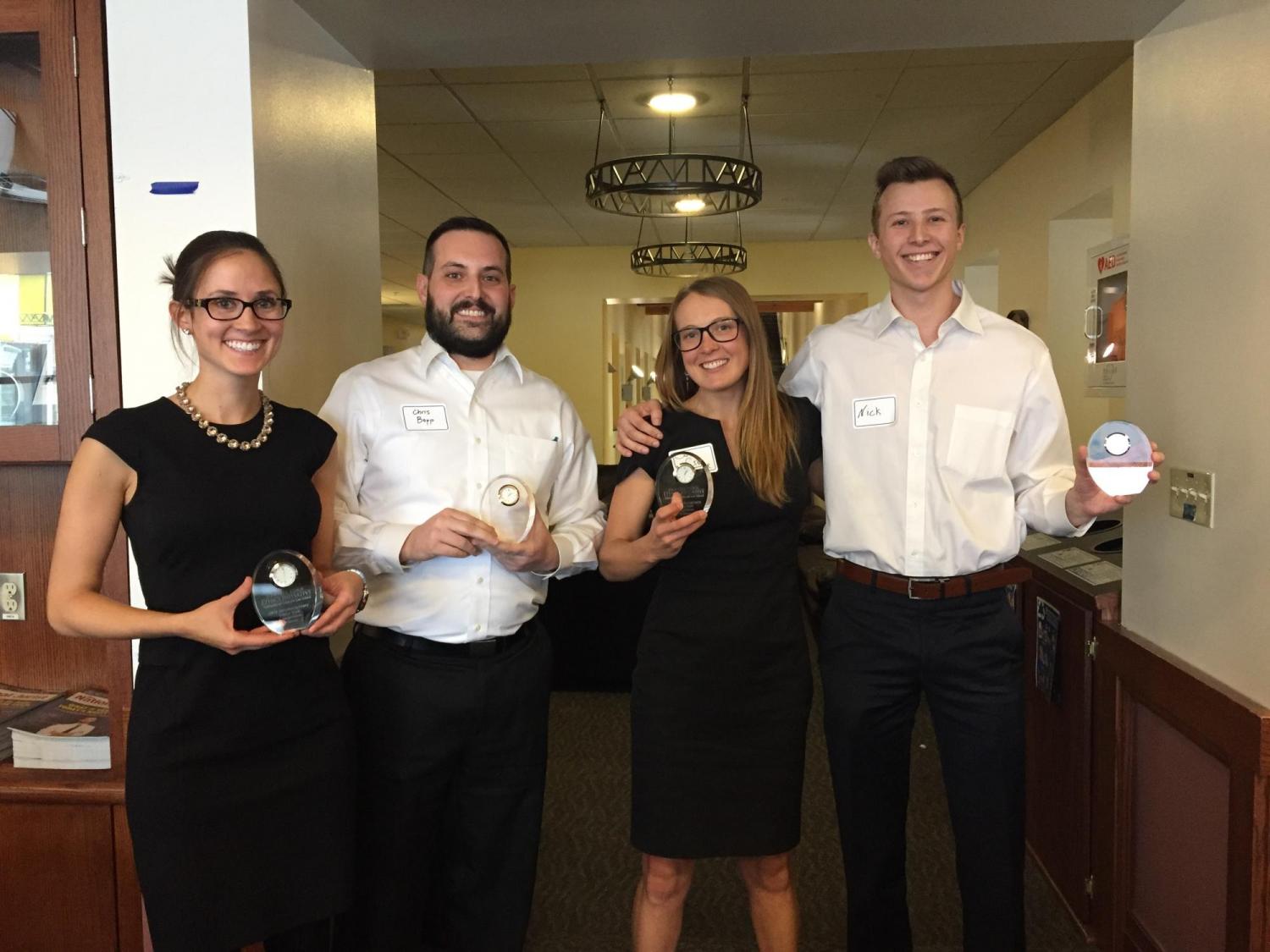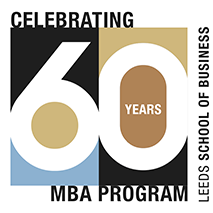Interdisciplinary Ethics Tech Competition

The first place team included second year MBA student Colette Crouse (3rd from left)
David Smith, a first year MBA student, came in second with his team (far right).
The purpose of the competition is to give students the opportunity to collaborate cross-functionally and tackle a real-world ethical problem. Teams can be made up of law, business, communications, engineering, information science, and computer science graduate students. This practice-based learning experience strengthens problem-solving teamwork and helps prepare students to be ethical members of business management teams in the future.
I interviewed Colette Crouse, second-year MBA student, about her experience.
How did you learn about the case competition? How were the teams formed?
“I learned about it through an email from the Law School Daniels Fund Ethics Initiative—they advertised a lunch & learn in KOBL that I and a number of MBA students attended. The Daniels Fund, which ran the competition, composed our teams, mostly because there were students from different schools within CU participating which made it hard to form our own interdisciplinary teams.”
Can you briefly describe the solution your team proposed?
“Our solution was an online media literacy platform for high school students, consisting of an interactive curriculum and gamified applied learning platform where students could review real news articles and flag facts, figures, or statements that appeared to be false (fake). The curriculum would be delivered by teachers in the classroom; the learning platform would be used by students outside of the classroom to apply their media literacy skills.”
What was the most challenging part of the competition?
“The most challenging part was developing the scope of the case and our solution. Fake news is an abstract and big problem, and we knew going into the competition that if we tried to wrap our arms around the problem comprehensively, we’d fail. We set out to find a good solution to some aspect of the problem, and to not let perfect be the enemy of good.”
What advice do you have for someone wanting to participate in this or a similar competition next year?
“I’d encourage any student that has interest next year to participate. It was a great opportunity to view a problem from the perspective of another discipline and provided excellent public speaking practice. The Daniels Fund purposefully wants this case competition to be fairly minimal in terms of the time required, so it is easier to squeeze into student’s busy schedules. A unique component of this competition is that no technology (PowerPoint, etc) is used in the presentation.”
Thanks for the information and congratulations to the top teams!







